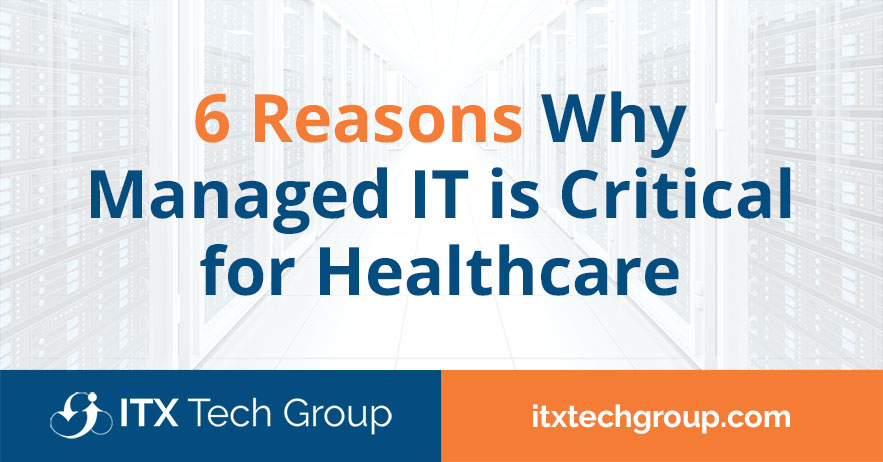In the healthcare sector, where patient care, data security, and operational efficiency are paramount, the role of technology is becoming increasingly pivotal.
Managed IT services have emerged as a critical component of healthcare organizations, providing comprehensive support to ensure seamless operations, enhanced patient care, and effective data security.
In this blog article, we will delve into six compelling reasons why managed IT is crucial for the healthcare industry and how it contributes to the overall success of healthcare providers.
1. Patient Care and Experience
Managed IT services play a vital role in optimizing patient care and experience.
From electronic health records (EHR) management to telemedicine solutions, IT ensures that patient data is readily accessible to healthcare professionals, enabling accurate diagnosis and informed treatment decisions.
Managed IT services streamline administrative tasks, allowing medical staff to focus more on patient interactions, thereby enhancing the overall patient experience.
2. Data Security and Compliance
Data security is of utmost importance in healthcare. Protected Health Information (PHI) is highly sensitive and subject to strict regulatory requirements such as HIPAA (Health Insurance Portability and Accountability Act).
Managed IT services provide advanced cybersecurity measures, encryption, and regular security audits to ensure that patient data remains confidential and compliant with industry regulations.
This safeguarding of patient information is critical to maintaining trust and avoiding potential legal consequences.
3. Disaster Recovery and Business Continuity
Unforeseen events, such as natural disasters or cyberattacks, can disrupt healthcare operations and compromise patient care.
Managed IT services establish effective disaster recovery and business continuity plans, including data backups, redundant systems, and off-site storage.
These measures ensure that critical patient data and services remain accessible even in times of crisis, minimizing downtime and supporting uninterrupted patient care.
4. Technological Advancements and Integration
The healthcare landscape is rapidly evolving with technological advancements. Managed IT services stay abreast of the latest innovations and integrate them seamlessly into existing healthcare systems.
From remote patient monitoring to AI-driven diagnostic tools, managed IT ensures that healthcare providers have access to cutting-edge technology that enhances medical outcomes and improves patient care.
5. Scalability and Flexibility
Healthcare organizations often experience fluctuations in patient volume and resource demands. Managed IT services provide scalability and flexibility, allowing healthcare providers to easily adjust their IT infrastructure and resources based on patient needs.
This adaptability ensures that healthcare systems can effectively handle varying patient loads without compromising performance or patient care quality.
6. Cost Efficiency and Predictable Budgeting
Managed IT services offer a cost-efficient solution for healthcare organizations. Instead of investing in extensive in-house IT teams and infrastructure, healthcare providers can leverage managed IT services for a predictable monthly fee.
This cost-effective model reduces overhead expenses, enables efficient resource allocation, and allows healthcare organizations to allocate resources to patient care and other critical areas.
Wrap Up
Managed IT services have become an integral and critical component of the healthcare industry.
From optimizing patient care and ensuring data security to enabling technological advancements and enhancing business continuity, managed IT services play a multifaceted role in the success of healthcare organizations.
By entrusting their IT needs to experienced managed service providers, healthcare providers can focus on what matters most: delivering high-quality patient care, maintaining data privacy, and advancing medical outcomes.
Conclusion
In an era where technology is reshaping the healthcare landscape, managed IT services act as a guiding force, enabling healthcare providers to navigate the complexities of data management, security, and technological integration.
Ultimately, the adoption of managed IT services in healthcare strengthens the foundation of patient-centric care, fosters innovation, and ensures the well-being of both patients and healthcare professionals alike.
ITX Tech Group has been serving small, medium, and large scale businesses with their IT support needs all over the United States since 2011, so we’re confident we can provide you with affordable, professional IT solutions for years to come!
Connect with us for a free consultation to discuss your business technology needs.

